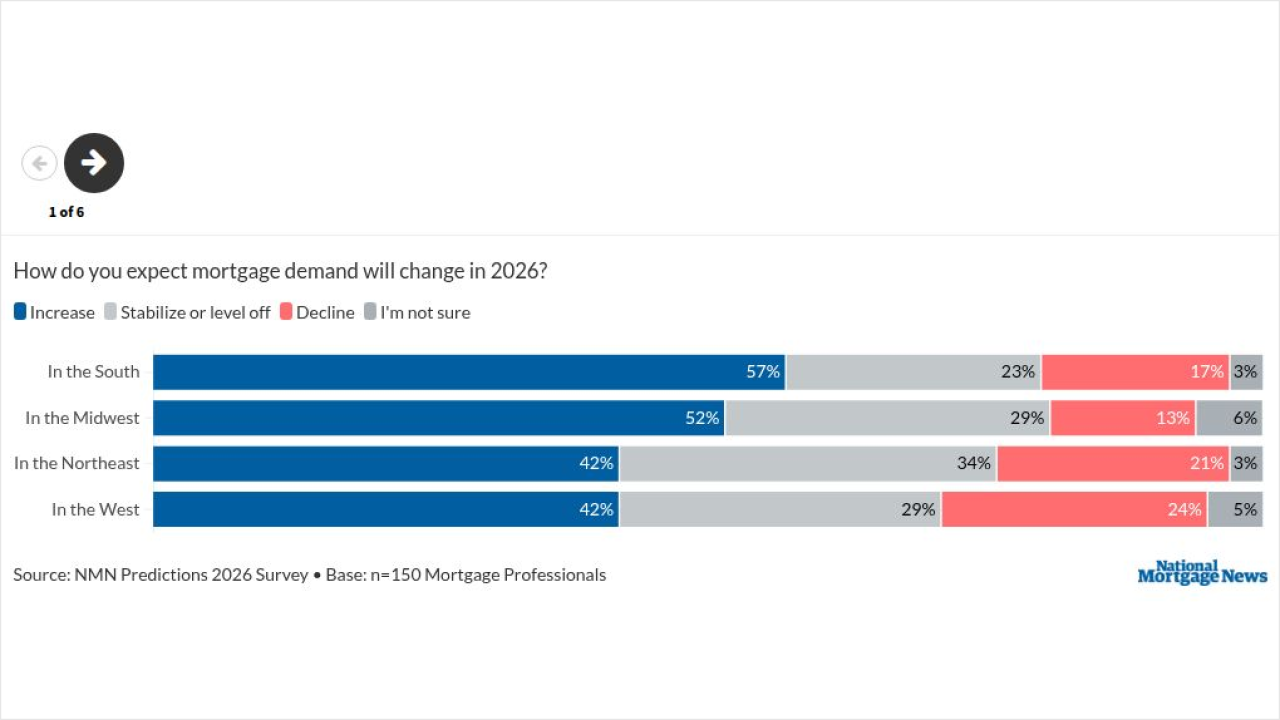MGIC Investment Corp. responded to the broad-based roll out of "black box" pricing engines from the other mortgage insurers by bringing its version to market.
"When it comes to competing in the market, our strategy is fairly straightforward," CEO Patrick Sinks said on the company's fourth-quarter analyst call. "We want to remain a relevant business partner with our customers in order to prudently grow insurance-in-force."
"Recently,
But like the competition, it will still offer rate card pricing to those customers that desire it, Sinks said.

"As for the broad market adoption of MIQ, we expect to be market driven but I believe that will increase over the course of 2019," he continued, later adding he expected MIQ's usage growth to be at a gradual pace. "We haven't publicly stated any target by the end of the year, but we will be in the market with it as will everybody else and we will compete."
So far, MGIC has not seen any impact from the government shutdown on its business, Mike Zimmerman, senior vice president of investor relations, said during the call.
"The number of workers compared to the overall employment base and homeowner base is relatively small, but we will see how long it lasts and what implications it has to the overall economic conditions," he said.
MGIC's fourth-quarter net income of $157.7 million was a near sixfold increase over the $27.3 million earned the same period one year prior. In
For all of 2018, MGIC earned $670.1 million, up from $355.8 million in 2017.
MGIC's earnings beat the consensus estimate of $0.39 per share and $0.38 per share from both B. Riley FBR and Keefe, Bruyette & Woods.
"Overall, we view this as a favorable result for MGIC and expect this trend to continue to the other PMIs like NMI Holdings and Radian," a research note from B. Riley FBR analyst Randy Binner said.
New insurance written was $12.2 billion for the fourth quarter, down slightly from the $12.8 billion one year prior. For the full year, it had $50.5 billion of NIW, up from $49.1 billion in 2017.
For 2019, MGIC is expecting about the same level of NIW as last year, based on the expected purchase activity, Zimmerman said during the call.
But the delinquency inventory fell over 29% during the 12-month period to 32,898 loans. The delinquency rate fell to 2.47% as of Dec. 31, from 3.7% on the same day in 2017 and 4.05% at the end of 2016.
If the




